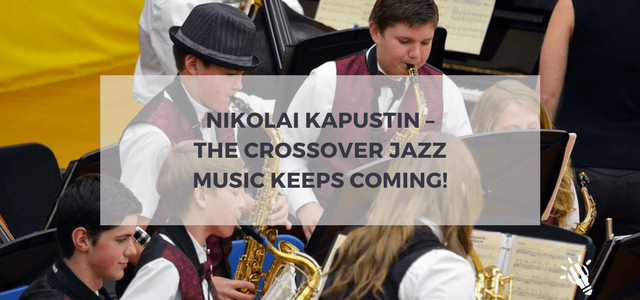Since being introduced to the music of Friedrich Gulda at the APPC conference in July by Jovanni de Pedro, I stumbled upon another fantastic and, it seems, undervalued crossover jazz/classical composer: Nikolai Kapustin.
Kapustin has been active as a composer since the late 1950s though he has only become known in the West during the last decade. Kapustin fell in love with American jazz while in his teens and began combining elements of jazz style with classical form from his earliest days as a composer, despite living his whole live in Russia.
Though his early experiences seemed to indicate a career as a virtuoso classical pianist, his path changed in his early twenties,
… at 20, 21, 22, I understood that jazz was very important. And I didn’t like performing; composing was more interesting”.
Kapustin’s output for solo piano is vast, including 18 sonatas, the set of 24 Preludes, a set of Preludes and Fugues in all 24 keys, and many other collections including suites, etudes, and impromptus, not to mention six piano concertos!
Before I say anymore, have a look at him playing his own impromptu here:
Most people who comment on Kapustin’s music focus on his combination of jazz harmonic and rhythmic language with classical form.
One of my favourite works is his Second Sonata. It has a beautifully lyrical and fantastically rhythmic first theme.
Unfortunately, I haven’t had any time to try playing any of his music, but will endeavour to do so when time permits. That said, having looked at a number of the scores, it certainly isn’t beginners stuff and it would challenge any level of player. Consider him a Christopher Norton for your Amus, Lmus and beyond candidates!
Another popular piece seems to be his Etude No 3 – a brilliantly rhythmic Toccatina. Hints of Kabalevsky in the mix?
And check out the walking bass prelude (compare to Gulda’s “Play Piano Play” etude #5):
…and there are HEAPS more clips on youtube of Kapustin playing his own music (often showing the score), so please go and check it out – definitely worth a listen!
